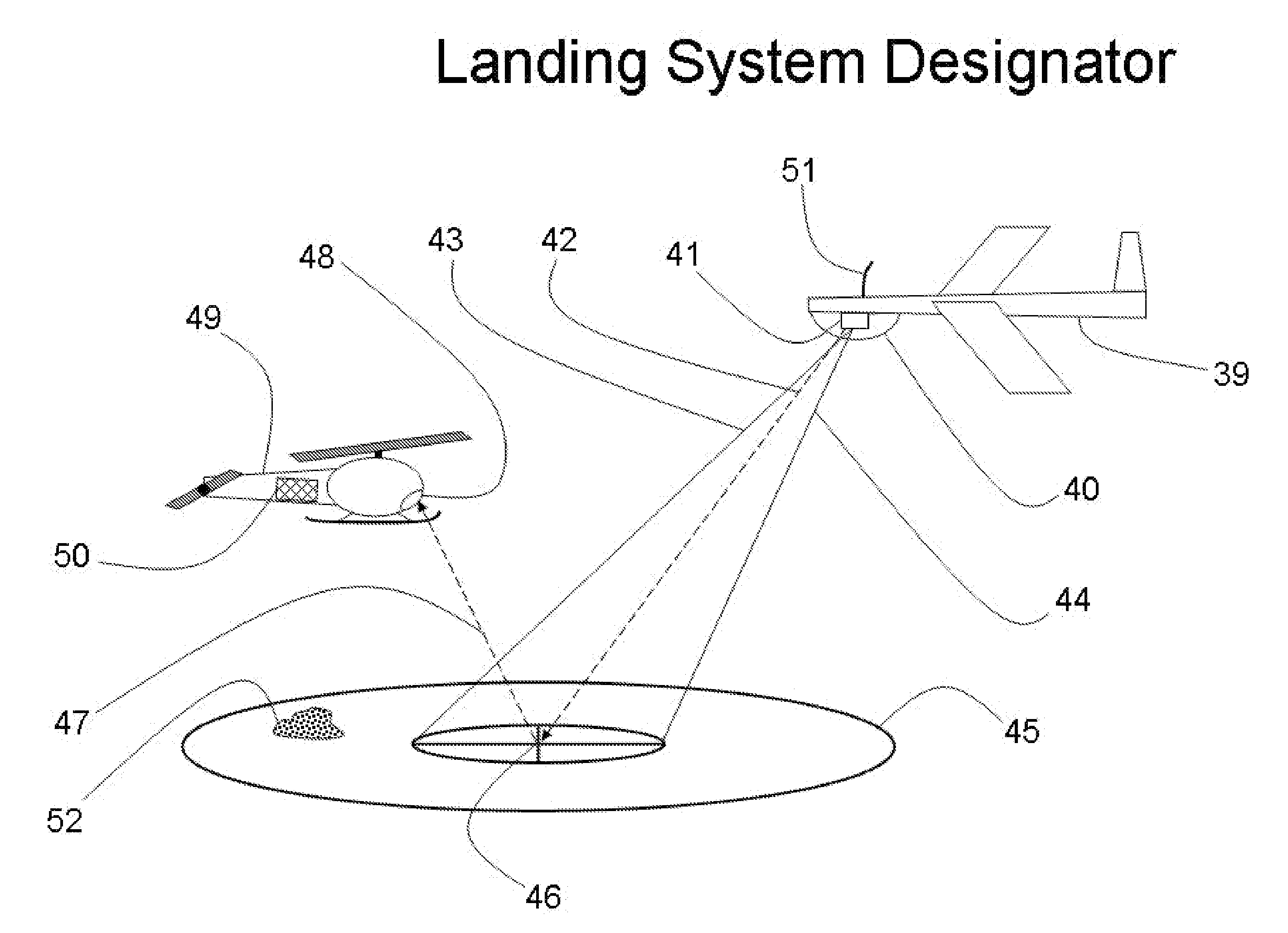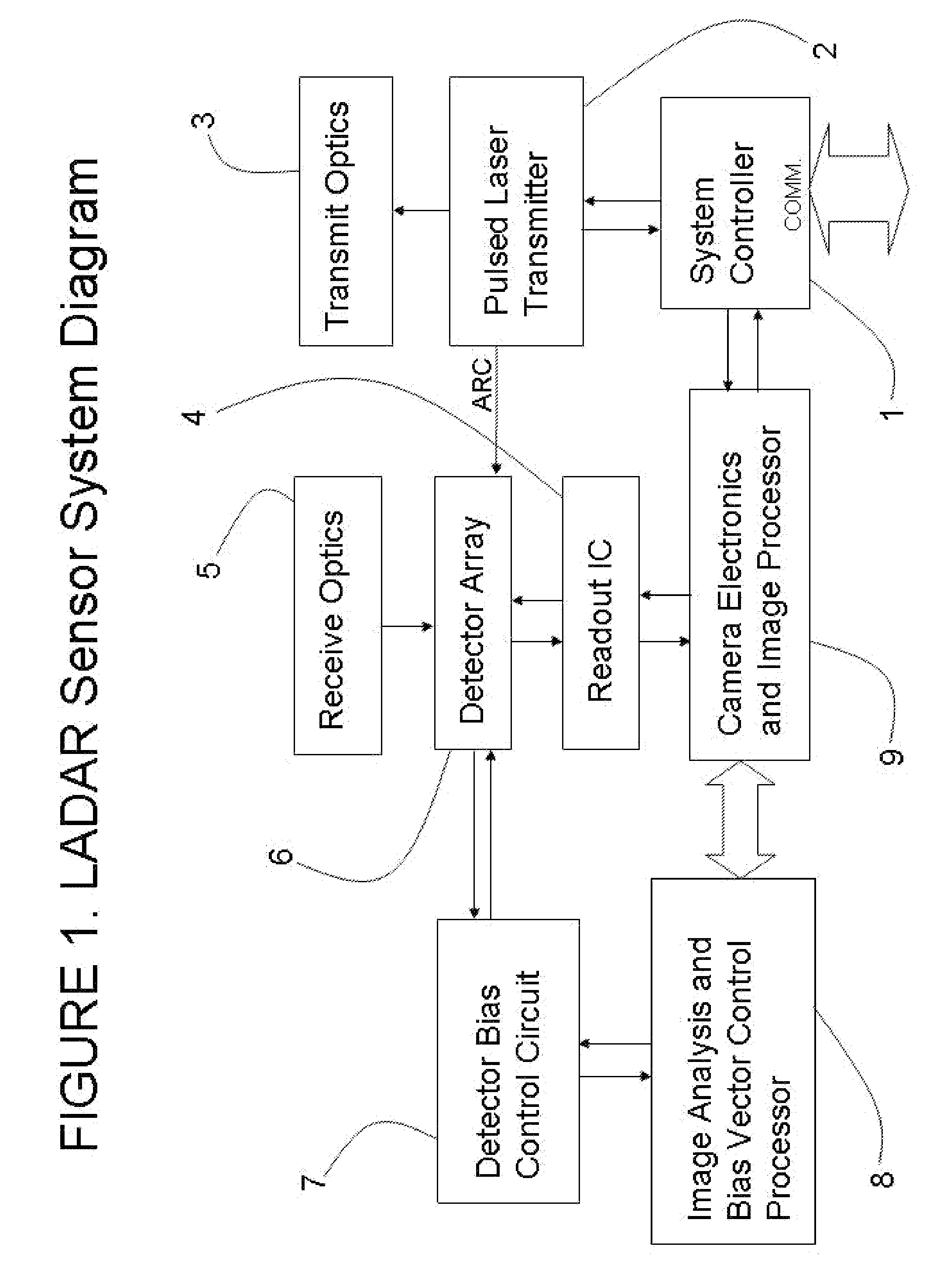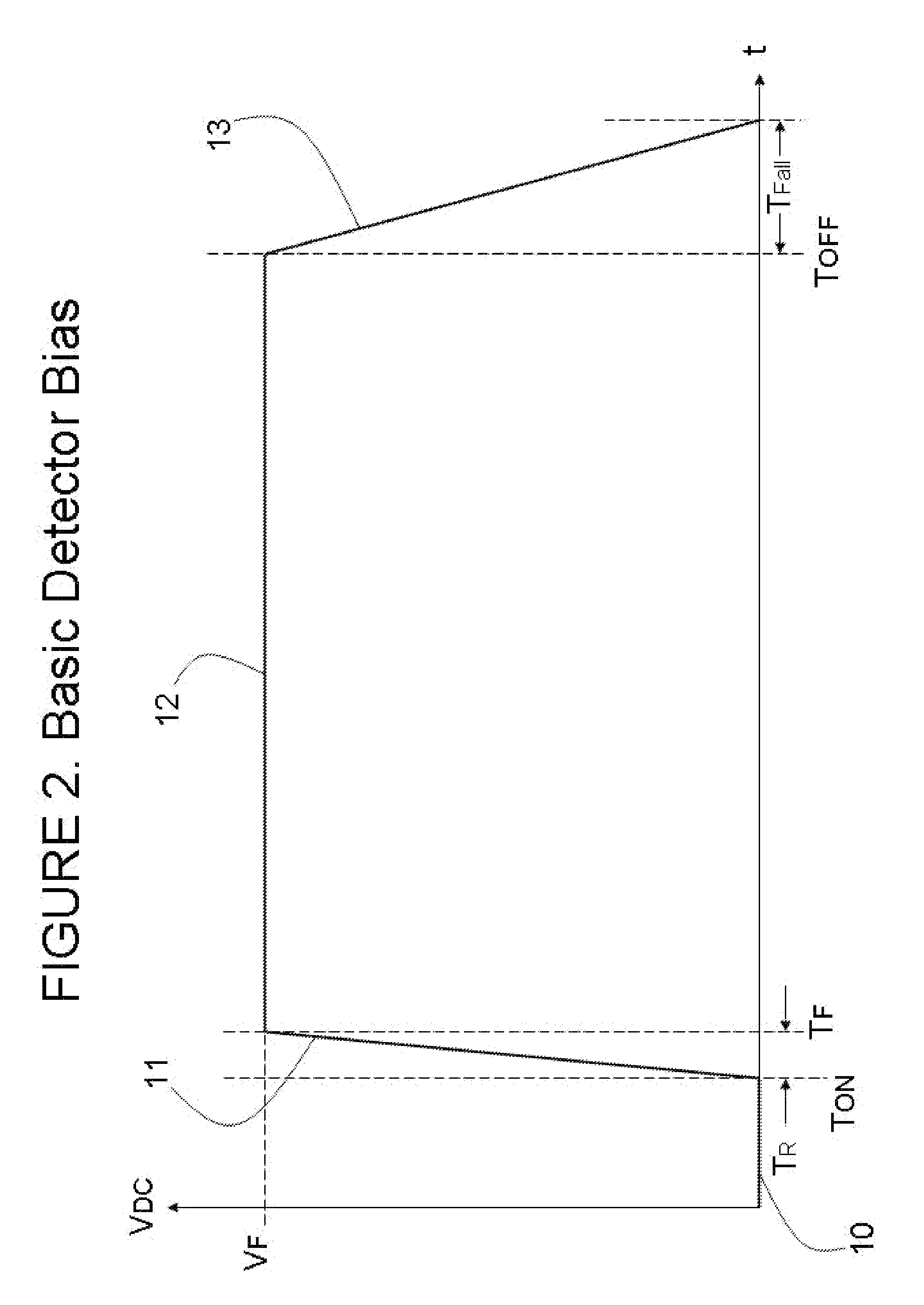Ladar sensor for landing, docking and approach
- Summary
- Abstract
- Description
- Claims
- Application Information
AI Technical Summary
Benefits of technology
Problems solved by technology
Method used
Image
Examples
Embodiment Construction
[0019]An embodiment of the present invention, the LADAR sensor for landing and approach is depicted in block diagram form in FIG.1. The system is designed to produce a series of 3-dimensional images using pulsed laser light, a pixelated imaging optical receiver responsive to light reflected from the scene in the field of view, and timing circuits associated with each pixel of the imaging optical receiver. The LADAR sensor for landing and approach is capable of producing range and intensity data for any object or scene within its field of view from a single pulse of pulsed laser transmitter 2, in conjunction with system controller 1, transmit optics 3, receiver optics 5, detector array 6, readout integrated circuit 4, camera electronics and image processor 9, image analysis and bias vector control processor 8, and detector bias control circuit 7. The abbreviated description “ladar sensor”, may be used as a shorthand reference to the “ladar sensor for landing and approach” of the inst...
PUM
 Login to View More
Login to View More Abstract
Description
Claims
Application Information
 Login to View More
Login to View More - R&D
- Intellectual Property
- Life Sciences
- Materials
- Tech Scout
- Unparalleled Data Quality
- Higher Quality Content
- 60% Fewer Hallucinations
Browse by: Latest US Patents, China's latest patents, Technical Efficacy Thesaurus, Application Domain, Technology Topic, Popular Technical Reports.
© 2025 PatSnap. All rights reserved.Legal|Privacy policy|Modern Slavery Act Transparency Statement|Sitemap|About US| Contact US: help@patsnap.com



